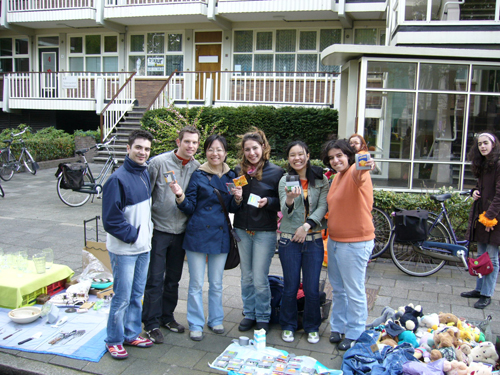“When dealing with any threat, two questions must be answered. Is it real and what should be done about it?
The threat from Gazprom, which supplies a quarter of the European Union’s gas, is real. Russia’s state-controlled gas monopoly can turn off the tap and was not afraid to do so during this year’s dispute with Ukraine. The profitability of Gazprom’s exports, compared with traditionally lossmaking domestic supply, mitigates against too hardline a stance with western customers – particularly now there are signs Moscow is more concerned about inflation than continuing to allow real gas prices at home to rise.”
from lex colum, on finantial times last week.
russia is now in the presidence of the g8, and the theme for it’s presidency is energy security. there’s a clear conflict of interests here.
the g7 wants to diversify their energy sources and routes, “liberalizing the access to pipelines and stopping countries from unilaterally suspending gas supplies in a price dispute” (as the one that happened earlier this year, between gazprom and ukraine, and the one going on now, between gazprom and belarus. anyone see a pattern here?).
russia thinks otherwise and is looking forward to get a firm grasp over their pipelines and monopolies. a possible bid on an uk energy company has recently triggered english/european fears and raised the possibility of a law change that would directly stop their intentions.
moscow didn’t like it – last week gasprom warned the world “not to mix gas with politics”. but how not to, now that they are thinking of buying a couple of pipelines to china and start to export their western siberian gas that way?
note that gas from europe also comes from western siberia*, which means the both the markets would have to “share the gas”… and that disputes and agreements would have to be settled between china and europe, from now on.
the danger the gas/oil demand growth is very real in the next few years as russia is not ready to cope with such growth, and prices will inevitably rise.
the future? a cold, expensive question mark.
(i’m starting to like all this energy markets dynamics, i must confess. research is needed, for full understanding and clearing the dodgy points. more notes on gas will follow, sparingly. no intentions of turning the meiadeleite.com into a gas-blog, rest assured, but if you know of any interesting articles on the issue, send them my way please. :)
)
* there’s also gas in eastern siberia, but not the infrastructures to extract it and they don’t really want to build them. it’s cheaper to buy it from their asian competitors and therefore eliminate the competition.



